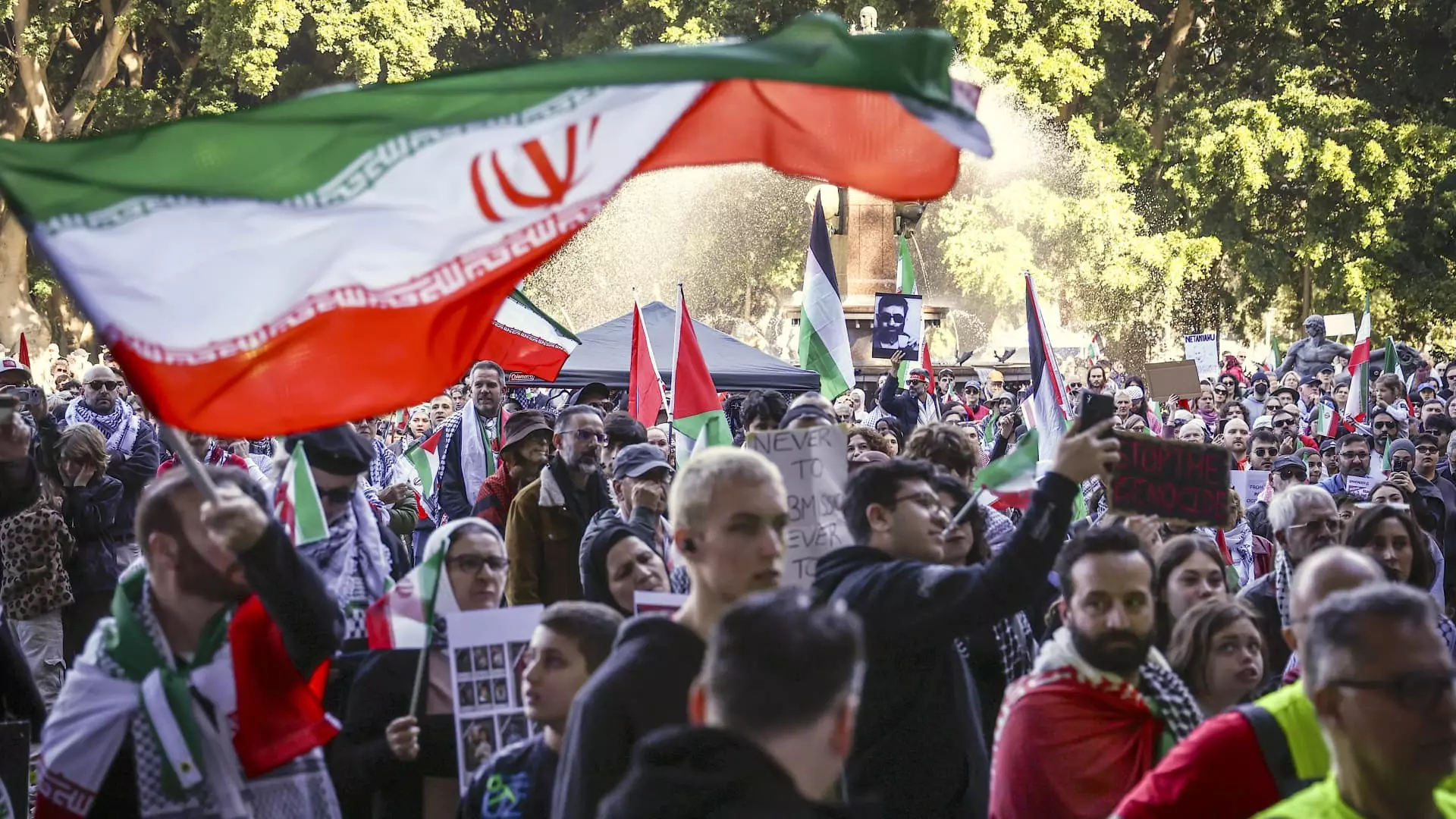The recent military maneuvers in the Middle East have crossed a significant threshold, inciting a firestorm of geopolitical tension that threatens to engulf the region in instability. Iran’s Foreign Minister, Abbas Araghchi, emphatically declared Iran’s right to respond to what he characterized as “outrageous” attacks on its nuclear facilities by the United States. The audacity of the U.S. military attacking three critical nuclear sites in Iran marks a historical pivot from existing diplomatic efforts to raw aggression, setting a worrying precedent for international relations. Tension in the region has transformed from a diplomatic chess match into a high-stakes game of military retribution.
Iran’s Resilience: A Soaring Defiance
Araghchi highlighted Iran’s resolute stance toward its sovereignty and territorial integrity in the face of aggression. The language he employed was not merely defensive; it was a clarion call for action—an assertion that Iran will not permit external entities to dictate its future or undermine its national security. The Iranian state media reported that the military has retaliated by launching its 20th wave of missile and drone strikes against Israeli military interests. This demonstrates a remarkable capacity for resilience, highlighting Iran’s commitment to a robust defense, even amid escalating international hostility.
From a political standpoint, these retaliatory strikes exhibit a level of defiance that reshapes the potential contours of regional power dynamics. While the U.S. and Israel may view their military actions as attempts to curb Iran’s potential threats, these efforts might be misconstrued as catalysts that solidify Iran’s position on the global stage. Instead of eradicating perceived dangers, the U.S. aggression could inadvertently bolster Iran’s narrative as a besieged nation defending its rights.
The Fateful Consequences of Military Escalation
Araghchi’s remarks about the “everlasting consequences” of U.S. actions serve as a stark reminder of the catastrophic fallout that can arise from military engagement. They remind us that the cycle of violence not only threatens national security but carries humanitarian repercussions that extend far beyond military objectives. The escalating conflict has already resulted in a staggering cost in human lives, with reports indicating that over 430 Iranians have been killed since Israel initiated its attacks. The numbers coming from Iran’s health ministry signal a tragedy that envelops families and communities, while the civilian casualties reported in Israel expose the perilous unpredictability of retaliatory frameworks.
*U.S. President Donald Trump’s proclamation of their military actions as a “spectacular success” adds a layer of irony—as success in warfare increasingly seems to manifest in destruction rather than resolution. Stoking the fire of conflict may achieve temporary military objectives, but at what expense?*
International Reactions: A Discerning Silence or a Commotion?
The diplomatic murmurings from neighboring countries reflect a growing discontent with the escalation unfolding in the region. The unease expressed by Saudi Arabia, Iraq, Oman, and Qatar suggests that the repercussions of the U.S. incursion resonate beyond just Iran or Israel. The regional perspectives shed light on the reality that any military escalation engulfs the entire Middle Eastern framework into chaos.
Lebanon’s cautious call for restraint and negotiation is particularly poignant in this atmosphere of volatility. Rather than merely taking sides, the response from various nations embodies a collective yearning for a more stable regional order—a desire for dialogue over destruction. The contrasting perspectives serve as a stark reminder that the principal players are often oblivious to the broader consequences of their tactical decisions.
A Call for Reflection in Chaotic Times
The disastrous consequences of militaristic posturing bear witness to a deeper truth: effective diplomacy must supplant aggressive strategies. The international dialogue surrounding the situation falls short of addressing the grave risk of spiraling into a conflict dynamics that could escalate beyond control. United Nations Secretary-General Antonio Guterres articulated the precarious state of affairs, expressing concern about the volatility of the situation—a sentiment echoed by many who recognize the fragile nature of diplomacy in the face of firepower.
Ultimately, as the dust settles from each bombing run and missile strike, it becomes increasingly clear that the true cost of military aggression is borne not just by the countries in conflict but by countless innocent civilians caught in the crossfire, further deepening divisions and obstructing diplomatic pathways. The necessity for peaceful resolution, introspection, and restraint from all sides cannot be overstated, as the horrifying events unfolding in the Middle East illustrate the necessity for a return to dialogue before we find ourselves irrevocably spiraled into chaos.


Leave a Reply